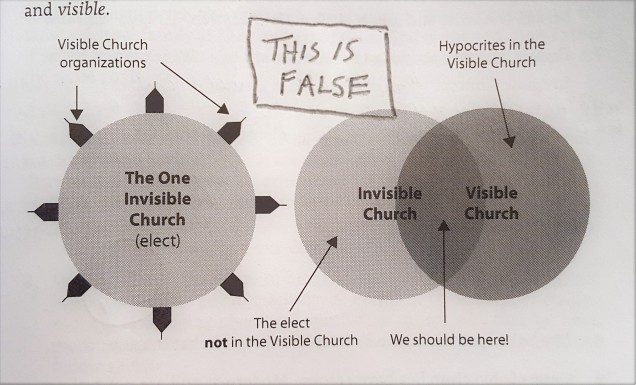
Some people belong to the invisible Church, but are not members of a local visible church. Many people belong to a visible church but are not true believers at all and are thus not in the invisible Church. We must be members of both, by faith in Christ and by confessing Christ. (Norman L. Jones, Study Helps on the Heidelberg Catechism, p. 121)
Now that my third and fourth children are studying through the Heidelberg Catechism in preparation for public confession, my annoyance with the above quoted claim has—well, tripled and quadrupled. I had simply marked “FALSE” on the Venn diagram attending these statements in my first two children’s study guides, but now I am fortunate enough to also contribute to a blog. (Thank you Paul!) And it seems, after asking around, that these statements represent a more common sentiment than I had originally thought. I hope to quickly show below that this is not at all what the Catechism teaches, and more importantly that it is not the teaching of the Scriptures.
